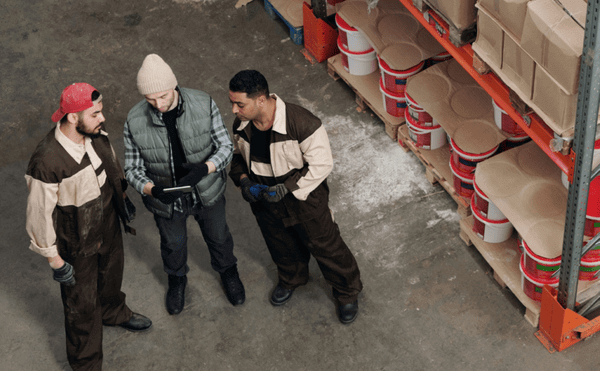New Packaging Challenges in 2022
New Packaging Challenges in 2022

By Sujan Shah, CEO, Rocaba Packaging Ltd.
Over the last two years, supply chains have had to adjust to the shock of both Brexit and the repercussions of a global pandemic.Numerous national lockdowns made eCommerce shopping the norm, supply chains have struggled to meet demand and product delays and unavailability have become more common. There are many reasons for this – who could forget the SuezCanal blockage in March last year –all of which have made us adjust the way we shop, become more inclined to stockpile goods and buy early to avoid missing out on the products we want.
In the packaging industry, we’ve seen a number of issues, from severe materials shortage, shipping and haulage challenges including transportation problems and fuel shortages, inflated shipping costs and backlogs at ports. This is showing no signs of letting up in 2022, and the resilience of supply chains, particularly for essential items such as packaging, will inevitably face more scrutiny over the next 12 months.
Challenges In Packaging
Closed borders during the pandemic forcedmany packaging buyers to look closer to home for stock. This, however, presents its own challenges. For example, scaling up packaging productionin Europe, especially when you consider changes to consumer demand for sustainable materials and the current trend by Chinese manufacturers to mass purchaseraw materials.Increasingly nearshore supply options are needed by businesses, but putting this in place is not a quick process.
Issues with materials production combined with the UK’s departure from the EU and the disruption this is having onits exports and the availability of hauliers, is creating unprecedented delays and cost increases in the global packaging supply chain.
At the UK’s borders in 2021, itinitially prioritised ‘flow over compliance’ due to shortages in customs agents to check incoming goods.Inbound traffic into the UK has still been affected by the actual availability of freight, mainly because there is less leaving the UK with outbound checks of goods into the EU having been in place since the beginning of the year. As the UK is forced to rollout similar checks, there is likely to be unprecedented disruption to goods both ways. UK business are going to have to look at either stockpiling goods in the UK, finding local manufacturers to produce for them or bring the production in house.
Based on current shortages and the trend we are seeing from China manufacturersin buying extremely large volumes of raw materials which is impacting manufacturers elsewhere, we believe it could be up to two years until UK-based packaging buyers see reduced waiting times on orders.
Sustainable Packaging
Another trend which is set to continue in the New Year is consumer demand for products which are perceived to be ethically sourced and more sustainable. In our own business, which supplies packaging across a range of industries including retail and hospitality businesses, we’ve seen high demand for paper over plastic, as well as a focus on supply and transportation which reduces risk and carbon emissions. Although it is still cheaper to ship packaging from Asia, other factors are coming into play so that buyers are diversifying their options.
Interestingly, paper packaging is still damaging to the environment and education is needed if consumers want to be truly sustainable in their purchase choices. Most paper packaging is single-use, not waterproof and weaker than its plastic alternative. Plastic bags can, and should, be reused for as long as possible, plus the average carrier bag you get from a supermarket or shop uses very little plastic in relation to other items in the home.
The Packaging Landscape This Year
Interestingly, paper packaging is still damaging to the environment and education is needed if consumers want to be truly sustainable in their purchase choices. Most paper packaging is single-use, not waterproof and weaker than its plastic alternative. Plastic bags can, and should, be reused for as long as possible, plus the average carrier bag you get from a supermarket or shop uses very little plastic in relation to other items in the home.
The reality of supply chain delays and spiralling prices may mean meeting demand takes time. Although current blockages and longer lead times will eventually ease, for the UK at least, the added complexity of Brexit and difficulties exporting are going to have an impact for any suppliers without a European presence for some time.